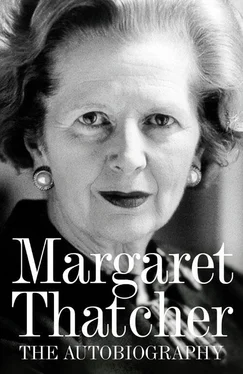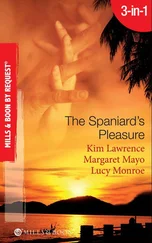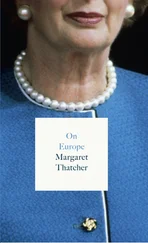As this suggests, my father was a man of firm principles – ‘Your father always sticks to his principles,’ my mother would say – but he did not believe in applying these principles in a way which made life wretched for everyone else. He showed this in his dealings as a local councillor and later alderman with the vexed question of what could be done on the Sabbath. In those days in Grantham and in most places cinemas were closed on Sundays, but during the war – adopting a utilitarian rather than a dogmatic approach – he supported Sunday opening because it gave the servicemen stationed near the town somewhere to go, without disturbing others who wanted a quieter, more contemplative Sabbath. At the same time he strongly (though in the end unsuccessfully) opposed the opening of the parks for the playing of games, which he felt would ruin other people’s peace and quiet. He wanted to keep Sunday a special day, but he was flexible about how it should be done. For my own part, I was unpersuaded, even as a girl, of the need for these restrictions: but I can now appreciate how much this highly principled man was prepared to bend on the matter when circumstances made it sensible.
These upright qualities, which entailed a refusal to alter your convictions just because others disagreed or because you became unpopular, were instilled into me from the earliest days. In 1936, when I was eleven, I was given a special edition of Bibby’s Annual. Joseph Bibby was a Liverpool food manufacturer who used part of his considerable self-made fortune to edit a religious magazine which was an odd combination of character building, homespun philosophy and religion; it also contained beautiful reproductions of great pictures. I was too young to know that the underlying approach was Theosophist *but the Annual was one of my most treasured possessions. Above all, it taught me some verses which I still use in off-the-cuff speeches because they came to embody for me so much of what I was brought up to feel.
One ship drives East, and another drives West,
By the self-same gale that blows;
’Tis the set of the sail, and not the gale,
That determines the way she goes.
ELLA WHEELER WILCOX
Or again:
The heights by great men reached and kept
Were not attained by sudden flight,
But they, while their companions slept,
Were toiling upward in the night.
HENRY WADSWORTH LONGFELLOW
Whether it was that early exposure to Bibby’s Annual or just a natural bent, I was soon fascinated by poetry. Aged ten, I was the proud winner of a prize at the Grantham Eisteddfod for reciting poetry. (I read John Drinkwater’s ‘Moonlit Apples’ and Walter de la Mare’s ‘The Travellers’.) One day soon afterwards, when I called at a door to collect an order for groceries, I was given an edition of Milton by someone who knew how much poetry meant to me: I have treasured the book ever since. In the first years of the war I would go out as part of a concert party to the surrounding villages and recite from my Oxford Book of English Verse – another book which even now is never far from reach. Methodism itself, of course, has, in the form of the Wesley hymns, some really fine religious poetry.
Religious life in Grantham was very active and, in the days before Christian ecumenism, competitive. There were three Methodist chapels, St Wulfram’s Anglican church – the sixth-highest steeple in England, according to local legend – and a Roman Catholic church just opposite our house. From a child’s standpoint, the Catholics seemed to have the most light-hearted time of all. I used to envy the young Catholic girls making their first communion, dressed in white, ribboned party dresses, and carrying baskets of flowers. The Methodist style was much plainer, and if you wore a ribboned dress an older chapel-goer would shake his head and warn against ‘the first step to Rome’.
Even without ribbons, however, Methodism was far from dour. It placed great emphasis on the social side of religion and on music, both of which gave me plenty of opportunities to enjoy life, even if it was in what might seem a rather solemn way. Our friends from church would often come in to cold supper on Sunday evenings, or we would go to them. I always enjoyed the adults’ conversation, which ranged far wider than religion or happenings in Grantham to include national and international politics. And one of the unintended consequences of the temperance side of Methodism was that Methodists tended to devote more time and attention to eating. ‘Keeping a good table’ was a common phrase, and many of the social occasions were built around tea parties and suppers. There was also a constant round of church events.
It was, I confess, the musical side of Methodism which I liked best. We sang special hymns on the occasion of Sunday School anniversaries. The Kesteven and Grantham Girls’ School (KGGS) carol service – and the weeks of practice which preceded it – was something I always looked forward to. Our church had an exceptionally good choir. Every other year we would perform an oratorio: Handel’s Messiah , Haydn’s Creation or Mendelssohn’s Elijah. We would have professionals from London to sing the more difficult solo parts. But what made an impression on me was the latent richness of musical talent which serious training and practice could develop. My family also belonged to a music society and three or four times a year there would be a chamber music concert.
We were a musical family. From the age of five my parents had me learn the piano: my mother played too. In fact, I turned out to be quite good, and I was fortunate enough to have excellent teachers and won several prizes at local music festivals. The piano on which I was taught was made by my great uncle, John Roberts, in Northampton. He also made church organs. When I was ten I visited him and was thrilled to be allowed to play one of the two he had built in a cavernous barn-like building in his garden. Sadly, at sixteen I found it necessary to stop music lessons when I was cramming for my university entrance, and I still regret that I never took the piano up again. At this time, however, it was I who played the piano at home, while my father (who had a good bass voice) and mother (a contralto) and sometimes friends sang the old favourites of an evening – ‘The Holy City’, ‘The Lost Chord’, Gilbert and Sullivan, etc.
Perhaps the biggest excitement of my early years was a visit to London when I was twelve years old. I came down by train in the charge of a friend of my mother’s, arriving at King’s Cross, where I was met by the Rev. Skinner and his wife, family friends who were going to look after me. The first impact of London was overwhelming: King’s Cross itself was a giant bustling cavern; the rest of the city had all the dazzle of a commercial and imperial capital. For the first time in my life I saw people from foreign countries, some in the traditional native dress of India and Africa. The sheer volume of traffic and of pedestrians was exhilarating; they seemed to generate a sort of electricity. London’s buildings were impressive for another reason; begrimed with soot, they had a dark imposing magnificence which constantly reminded me that I was at the centre of the world.
I was taken by the Skinners to all the usual sites. I fed the pigeons in Trafalgar Square; I rode the Underground – a slightly forbidding experience for a child; I visited the Zoo, where I rode on an elephant and recoiled from the reptiles – an early portent of my relations with Fleet Street; I was disappointed by Oxford Street, which was much narrower than the boulevard of my imagination; made a pilgrimage to St Paul’s, where John Wesley had prayed on the morning of his conversion; and of course, to the Houses of Parliament and Big Ben, which did not disappoint at all; and I went to look at Downing Street, but unlike the young Harold Wilson did not have the prescience to have my photograph taken outside No. 10.
Читать дальше












